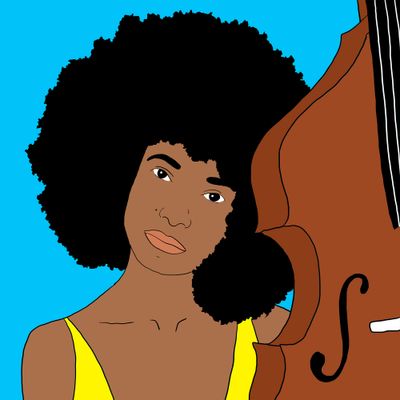
It. Has. Been. A. Year. We’ve felt it; you’ve felt it. Sometimes, it’s comforting to consider how universal that overwhelming sense of blah is. Other days, woof, it can be tough to see the light. That’s the subject of today’s episode, brought to you by our producer Megan Lubin.
When Megan hit an especially low point earlier this year, she noticed something in the music she was listening to: Über-popular artists making explicit references to the state of their mental health and the things they do to cope with it. It made her want to know more about the impact of those lyrics, so she dug around and found an academic who studies that very thing: Alex Kresovich, a Ph.D. candidate at the University of North Carolina’s Hussman School of Journalism and Media who has authored a bunch of studies on mental health and popular music. In today’s episode, we walk through one of those studies with him and learn how influential lyrical content can be — even when you’re not paying super-close attention. Alex’s research, and research like it, opens up the possibility that pop artists are an underestimated asset when it comes to mental-health messaging. “People like to point at pop music as a source of problems, not a source of solutions,” he says. Alex sees his job as guiding the scientific community toward new data that could change how we understand the value of pop-music lyrics — “laying the railroad ties,” as he puts it.
In the second half of today’s episode, we talk to an artist who has taken the concept of music as medicine to a whole new level. Over the course of her career, Esperanza Spalding has reimagined the music-making process — transforming it from one designed to meet her label’s commercial needs to one designed to meet the mental-health needs of her immediate community. With her new album Songwrights Apothecary Lab, Spalding offers up a collection of songs for “releasing the heaviness of a seemingly endless blue state,” for “steadying the vast-spinning ‘potential hurt’ analysis triggered by the bliss of new romance,” and for “slowing down and remembering to make space/time for your elders.” Spalding made clear that this way of “musicking” is nothing new:
It’s like the oldest thing ever….we’re playing with the origin of music. The origin of music being: a response to others in your community, in your surroundings. And the response is intuitive! When you hum for a baby or when you’re sitting with somebody who is grieving and you, you feel compelled to hum, or when you’re excited and go, “Wow!” That’s music!
Spalding’s view of music these days opened our eyes wide to the true healing power of individual songs and just how accessible music is when we need it.




